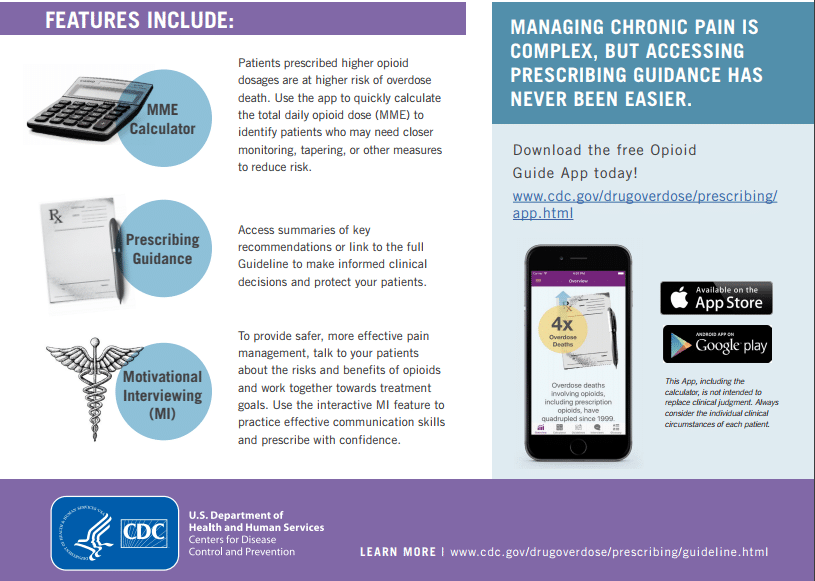Facing a rapidly worsening opioid epidemic, federal health organizations are turning to new technology to fight the growing problem. Leading the way, the Centers for Disease Control and Prevention (CDC) has created a mobile application called the CDC Opioid Guideline Mobile App.

The app features a Morphine Milligram Equivalent (MME) calculator that helps give prescription recommendations, and lets health providers practice effective communication skills. It is free and available to download on any smartphone. The CDC is optimistic that the app will help manage the legal distribution of opioid drugs more efficiently.
Cities across the U.S. have also found ways to tackle the opioid epidemic using new technology in their local communities. The Overdose Detection Mapping Application Program (ODMAP) helps first responders and public health officials locate areas where overdoses are happening. It also helps predict potential opioid drug trafficking areas.
Continue reading “Fighting the Opioid Epidemic Using New Technology”
